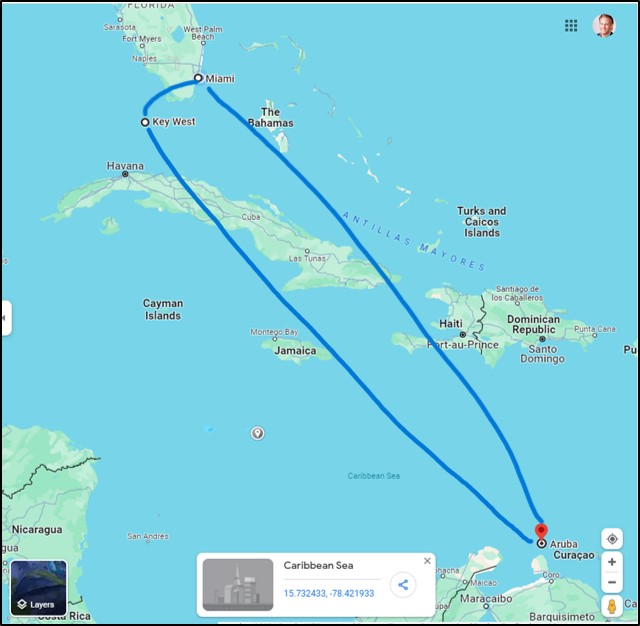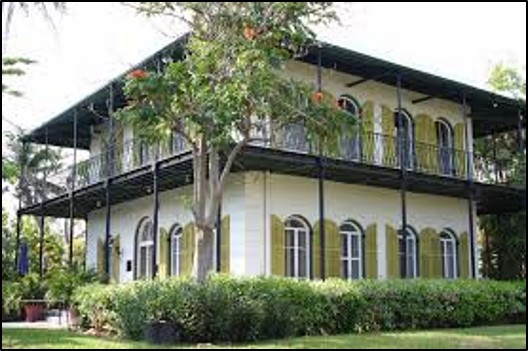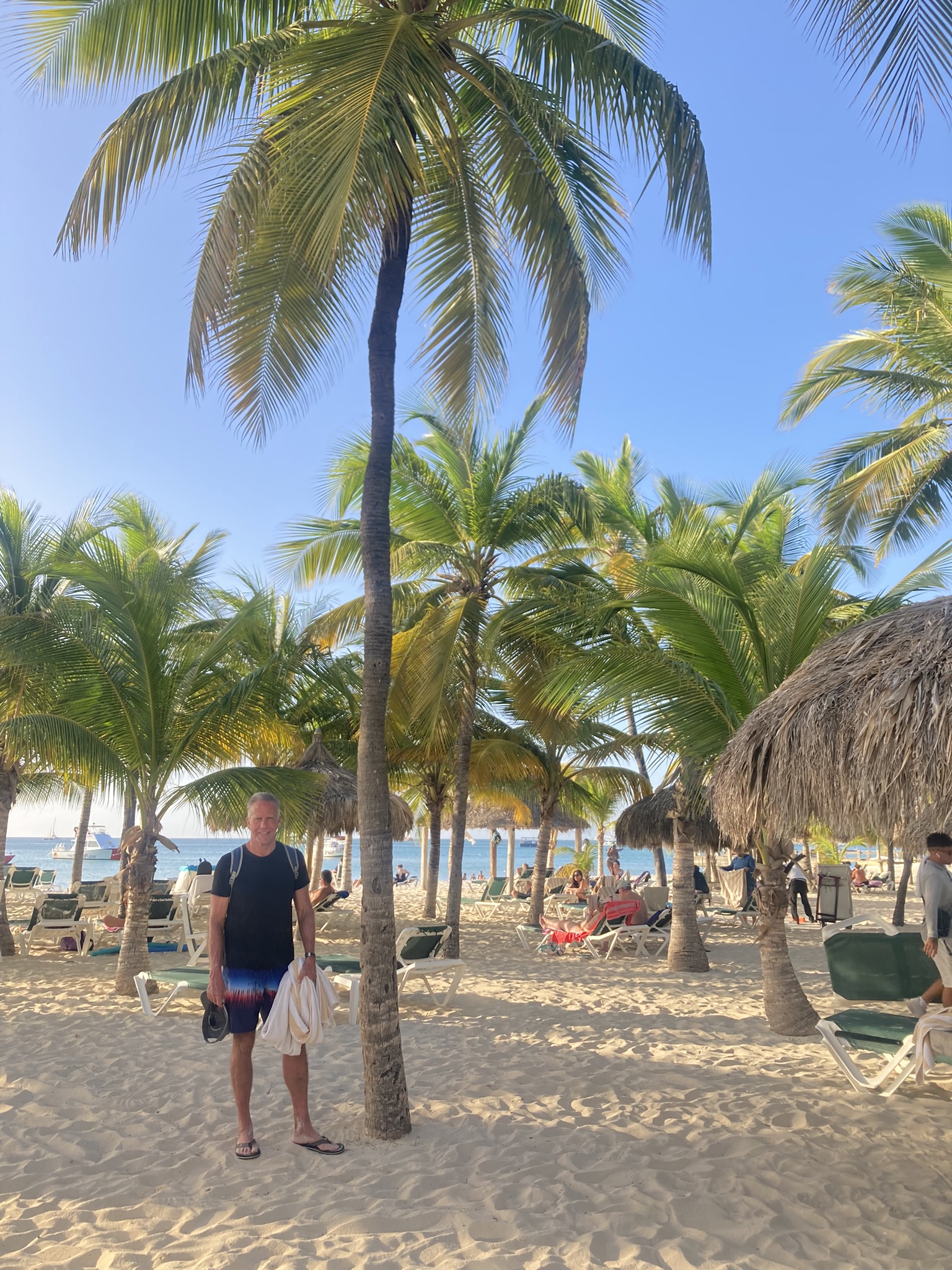This is your brain on music, Aruba, Key West
Mar 03, 2024In this newsletter:
- Kokomo - The Beach Boys
- Music changes us
- This is your brain on music
- Daniel J. Levitin
- Health benefits of music
- Beach party research trip:
- Key West, Florida
- Aruba
Kokomo - The Beach Boys
[Intro]
Aruba, Jamaica, ooh I wanna take ya
Bermuda, Bahama, come on pretty mama
Key Largo, Montego
Baby why don’t we go
Jamaica
[Verse 1]
Off the Florida Keys
There’s a place called Kokomo
That’s where you wanna go
To get away from it all
Bodies in the sand
Tropical drink melting in your hand
We’ll be falling in love
To the rhythm of a steel drum band
Down in Kokomo
[Chorus]
Aruba, Jamaica, ooh I wanna take ya
Bermuda, Bahama, come on pretty mama
Key Largo, Montego
Baby why don’t we go
Ooh I wanna take you down to Kokomo
We’ll get there fast
And then we’ll take it slow
That’s where we wanna go
Way down in Kokomo
Do you remember the song, Kokomo?
It's a song by The Beach Boys from the 1988 film Cocktail and album Still Cruisin'. The song became a number one hit in the US and their first number-one hit in 22 years.
Around a month ago, Ayane, my friend in Japan, sent me this video for fun: The Beach Boys - Kokomo (1988). We often share movie, music, and book ideas.
She had never been to the Caribbean.
Well, the next thing you know, we got talking...and talking....and booked a trip to two places from the song: Aruba and Florida Keys.
It happened that fast. And it never would have happened without that song.
We spent the past two weeks in Key West and Aruba.
In the song, Kokomo is a fictional utopian island off the Florida Keys. But that didn't bother us. Fiction could be fun.
Four days after our conversation, Ayane was on a flight from Tokyo to meet me in Miami.
Music changes us
Isn't it crazy what music can do to us?
I've been listening to music forever. As a child, I regularly watched my mom play the piano in the living room; and I dabbled for about a year each with playing the piano, saxophone, and guitar.
I could totally relate to Daniel Levitin (see below) when he talked about his youth and music. He writes:
"In the summer of 1969, when I was eleven, I bought a stereo system at the local hi-fi shop. It cost all of the hundred dollars I had earned weeding neighbors' gardens that spring at seventy-five cents an hour. I spent long afternoons in my room, listening to records...I had friends when I was a kid in the sixties who used to come over to my house to listen to the The Monkees because their parents forbade them to listen to anything but classical music, and others whose parents would only let them listen to and sing religious hymns, in both cases fearing the "dangerous rhythms" of rock and roll."
Personally, I didn't like weeding but the money was darn good for a 10-year-old. So I weeded Mr. Maffey's yard...all summer long.
I remember my dad was not particularly fond of our music interests back then, nor the hippie beads my little brother helped me install in the ceiling to partition our bedroom. Thanks again, Paul. Much appreciated. For me, the music and hippie beads were so countercultural at the time and that made them even more fun.
You can see the movie Elvis (2022 film) for a glimpse of the divisiveness surrounding the emerging rock and roll genre, and how the authorities crack down on Elvis for his seductive appeal on stage. His fans loved him.
Humans are innately influenced by music. It's wired in our DNA and can modify our behavior.
Here are some examples that come to mind for me.
Before a big game, The Star-Spangled Banner can make me cry. The older I get, the more I cry.
Van Halen’s song "Panama," pre-workout, gives me superpowers in the gym.
Earth, Wind & Fire’s song "Boogie Wonderland," makes me want to dance. Boogie boogie.
Miley Cyrus’ song "Flowers" at the 2024 Grammy's made me almost fall out of my chair. She won Record of the Year and Best Pop Solo Performance. My kids used to watch her Disney Channel television series Hannah Montana (2006-2011).
The song "Highwayman" makes me feel like a stronger man. It’s performed by The Highwaymen, an American country music “supergroup” composed of Johnny Cash, Waylon Jennings, Willie Nelson, and Kris Kristofferson.
When I listen to "In the Summertime (1970)," by the British rock band Mungo Jerry, I can smell the ocean and eucalyptus trees at the beach house in Santa Cruz, CA.
And of course, after a martini at night, with the music cranked up, and no one watching me, I become a rock star. It's crazy how much talent I have. The broomstick is my microphone. Being a real rock star seems like a pretty cool job. Thank god no one is watching me.
But mostly, I listen to Jazz or Classical music especially when I just sit, chill, read or simply think. Miles Davis and Antonio Vivaldi are two favorites.
When I’m writing I don’t listen to anything other than the voice in my head. My muse, or my soul, or whoever is up there speaking to me.
And, randomly, I’ll be doing something, anything, and a song will pop in my head. Bizarre. This happens often. It’s normal.
Why does music move us, make us jump out of our seats, make us cry, feel sad, lonely, happy, alive, pumped up, sexy, motivated, and so on?
For help with understanding this, I turned to Daniel J. Levitin’s, This Is Your Brain on Music: The Science of a Human Obsession, a book that explores the connection between music and the human brain.

Daniel J. Levitin
Daniel Levitin says music is fundamental to our species, maybe even more than language.
He attended the Massachusetts Institute of Technology and Berklee College of Music, dropped out of college, joined a rock band, and recorded music that became fairly well known in San Francisco.
“When the band broke up – due to the guitarist’s frequent suicide attempts and the vocalist’s nasty habit of taking nitrous oxide and cutting himself with razor blades – I found work as a producer of other bands.”
Levitin worked with many great producers and sound engineers who recorded music for a long list of famous musicians. He writes:
“One thing led to another, and I spent over a decade producing records in California; I was eventually lucky enough to be able to work with many well-known musicians. But I also worked with dozens of musical no-names, people who are extremely talented but never made it. I began to wonder why some musicians become household names while others languish in obscurity. I also wondered why music seemed to come so easily to some and not others. Where does creativity come from? Why do some songs move us so and others leave us cold?"
These questions led him back to school while at the same time working as a record producer. At Stanford, he sat in on “neuropsychology lectures by Karl Pribram. I found that psychology was the field that held the answers to some of my questions – questions about memory, perception, creativity, and the common instrument underlying all of these: the human brain.”
Levitin points out the similarities between artists and scientists. The work of both, he says, involve similar stages of development: “a creative and exploratory ‘brainstorming’ stage, followed by testing and refining stages that typically involve the application of set procedures, but are often informed by additional creative problem-solving. Artists’ studios and scientists’ laboratories share similarities as well, with a large number of projects going at once, in various stages of incompletion.”
“Music is unusual among all human activities for both its ubiquity and antiquity. No known human culture now or anytime in the recorded past lacked music…Whenever humans come together for any reason, music is there: weddings, funerals, graduation from college, men marching off to war…”
“Only relatively recently in our own culture, five hundred years or so ago, did a distinction arise that cut society in two, forming separate classes of music performers and music listeners. Throughout most of the world and for most of human history, music making was as natural an activity as breathing and walking, and everyone participated.”
Levitin goes on discussing in detail a number of musical terms:
- Pitch
- Rhythm
- Tempo
- Contour
- Timbre
- Loudness
- Reverberation
- Meter
- Key
- Melody
- Harmony
The book can be quite technical, but if you're a musician or interested in the science of music from the perspective of cognitive neuroscience, This is Your Brain on Music is an excellent resource.
Music has enormous mental, emotional, and physical implications for humans. There are many known benefits derived from playing and listening to music.
Health benefits of music
Music not only feels good to listen to but also offers health benefits:
- Stress Reduction – Music can lower cortisol levels, a stress hormone, making one feel calmer.
- Mood Enhancement – Studies show that music can boost your mood by releasing dopamine, a neurotransmitter associated with pleasure and reward.
- Improved Exercise Performance – Research has shown that listening to music while exercising can increase endurance, motivation, and overall performance.
- Pain Management – Music can help distract your brain from the pain signals it's receiving.
- Better Sleep – Listening to calming music before bedtime can promote relaxation and improve sleep quality.
- Enhanced memory – Certain songs can transport us back to a specific moment in time. It helps improve concentration, enhance learning, and aids in memory recall.
- Heart Health – Listening to music has been linked to lower blood pressure, reduced heart rate, and improved vascular function.
- Better romance – Music can most certainly create a more romantic atmosphere.
- More energy – It can improve our levels of energy and raise motivation.
- It can make you want to party - And parties can be a lot of fun.
Beach party research
So we set our sights on Key West and Aruba, and off we went.
We took a bus from Miami to Key West, stayed there four days, then flew back to Miami.
The next day we flew from Miami to Aruba, and stayed there five days.
Ayane is a wonderful travel companion. She's bright, fun, beautiful, adventurous, happy, and everyone loves her.
She's an excellent beach party research associate.
And since we are on the topic of music, this particular trip was a very powerful reminder of how much people love music and how much they like to party, dance, laugh, and have fun.
Here's a map in case you are not familiar with the territory of our strategic objectives.

Key West, Florida
It took us around 3.5 hours on the bus from Miami to Key West. I like the bus. You can take naps, eat snacks together, and use the restroom.
The island of Key West is around 4 square miles of land area.
It sits at the southernmost end of U.S. Route 1, the longest north-south road in the U.S.
It’s the southernmost city in the in the contiguous U.S. (Hawaii is farther south).
It’s only 100 miles from Cuba.
Duval Street, the main street, cuts across the island from the Gulf of Mexico to the Straits of Florida.
Duval Street is where it's happening.
We enjoyed the music and happy people at these three places:
- Sunset Pier - a nice place to watch the sunset with live music.
As much as I love music, my favorite place of all in Key West was The Ernest Hemingway House.
Here are pictures of Hemmingway's House, his writing studio there, and Ayane at Sunset Pier before we had another Mojito.


Aruba
Aruba is another fun, actually very fun, music and beach party destination.
And the water sports are a blast.
We stayed at a resort on Palm Beach there. Yes, Palm Beach, Aruba.
These are the activities where we excelled:
- Parasailing - the wind off Palm Beach added a steep vertical climb. I did my best not to look scared.
- Jet skiing - it was a bit choppy out there. Reminiscent of water skiing on Lake Anderson in Morgan Hill, CA in the afternoon. Bumpy kabooki.
- Snorkeling - sea turtles, coral, lots of colorful fish
- Tubing - holding on for dear life we characterized it, in terms of exercise, as equivalent to a "pull day" in the gym.
- Pool bar rum drinks - admittedly, the best part, after all those activities, was the enjoyment of sipping rum drinks in the pool bar listening to music.
Here's a picture of me standing on Palm Beach outside our hotel.
Wait. What did you say? Can you speak louder? Thank you. That’s better. Yes, I agree with you. My hearing is not great. Probably too many Led Zepplin Stairways to Heaven in my 1967 Ford Mustang when I was a kid.
Oh, what the hell. Turn up the music. I like this song. It makes me feel good.
Fellas, life is short. Play the music. Have some fun. Never stop having a good time.
Thank you for reading!
Be well,
Peter Pavlina





